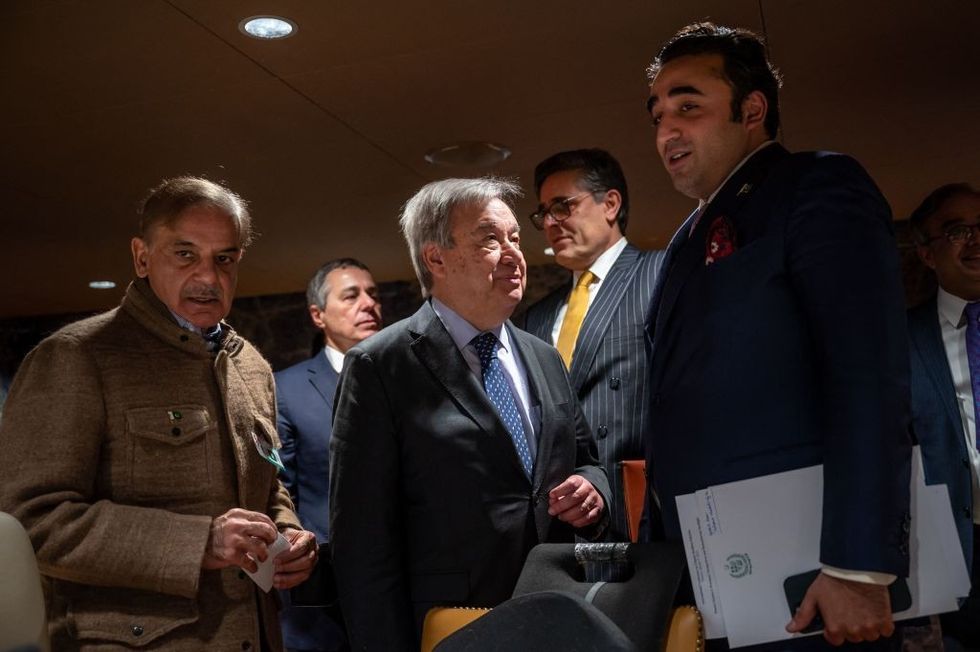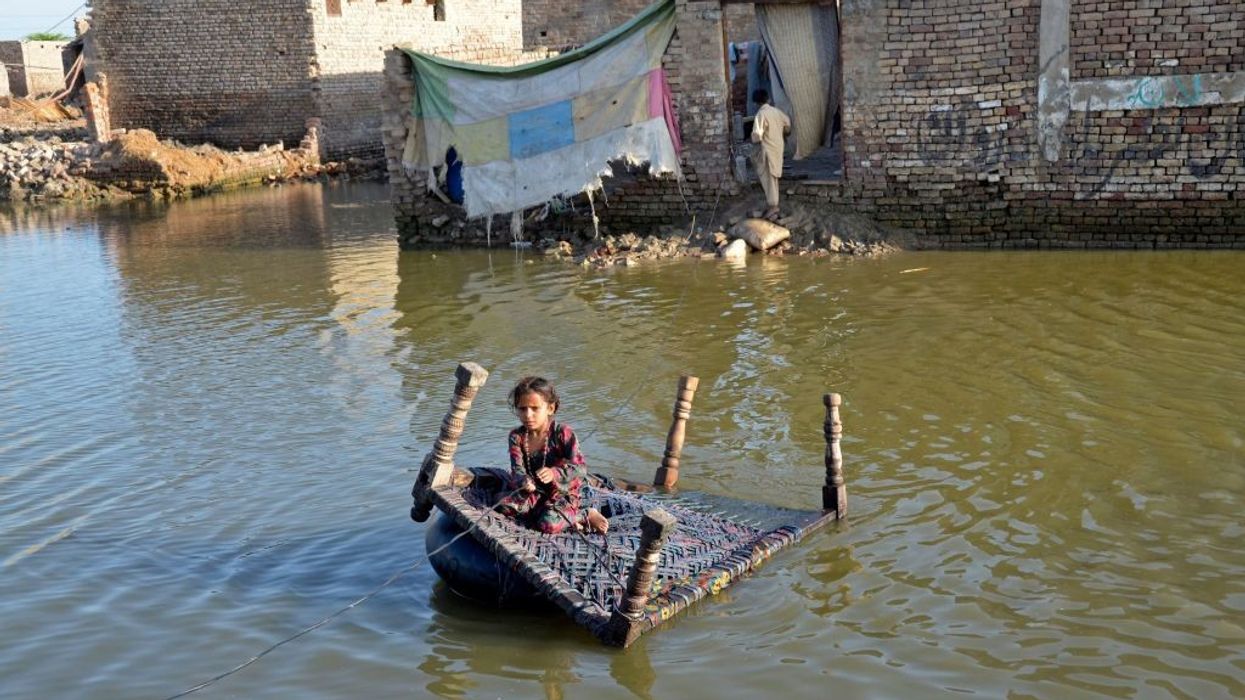The UK and its international partners were set to join forces on Monday (9) to support Pakistan rebuild and recover from the unprecedented floods that devastated the country last summer and affected tens of thousands of people and destroyed property worth billions.
Currently, Pakistan and the United Nations are jointly hosting a conference in Geneva, Switzerland, to help raise support for the South Asian nation's recovery and reconstruction.

Last year, Pakistan was on the frontline of the impact of climate change when catastrophic flooding swept away homes and livelihoods, leaving 20 million in need for humanitarian assistance.
It is estimated the country will need around $16 billion (£13.1 billion) for the next three to five years to recover from the devastation.
The UK, one of the first countries to respond to the disaster, was on Monday allocating more than £9 million from its Pakistan budget to help tackle the impact of the flooding, taking the total it has committed to the humanitarian response till now to £36 million.
The new allocation will help those who are in urgent need for essential services, besides supporting the government to plan for a climate-resilient future.
The UK's support includes water, sanitation, and hygiene to help prevent waterborne diseases; boost nutrition; cash support; shelter and protection services for women and girls, etc.
The funding is in addition to the support the UK has already pledged for climate resilience and adaptation in Pakistan.
Andrew Mitchell, the minister of state in the foreign, Commonwealth and development office, was set to speak at the conference, co-hosted by Pakistani prime minister Shehbaz Sharif and UN secretary general António Guterres.
At the conference, Mitchell was expected to say, “I visited Pakistan following the 2010 floods and saw the devastating impact on some of the world’s most vulnerable people. We stood by Pakistan then, as we do now.
“Looking to the future, it is crucial to build defences against weather-related disasters, as our changing climate puts us more and more at risk. This is why the UK will help Pakistan to adapt and mitigate the effects of climate change.”




